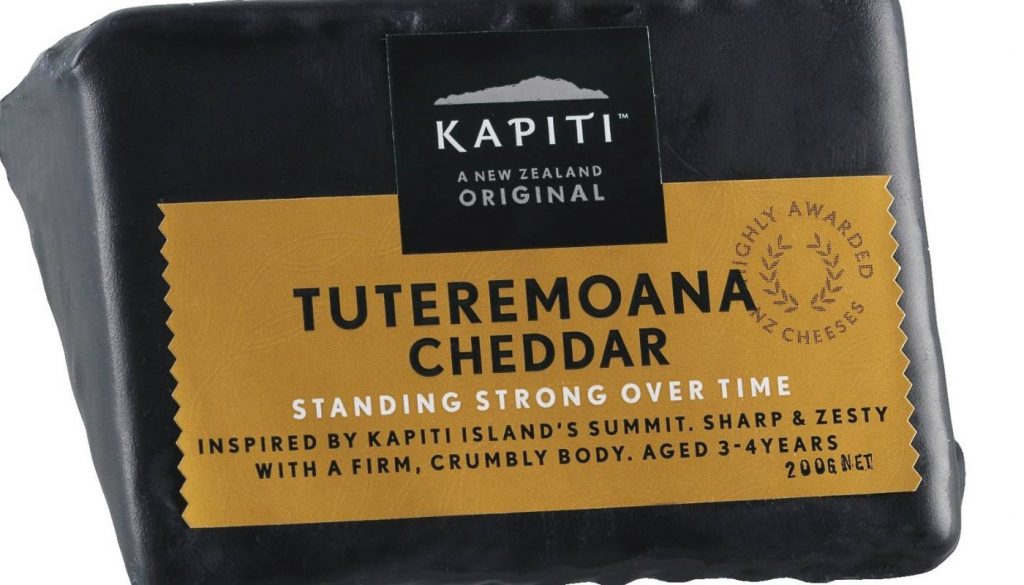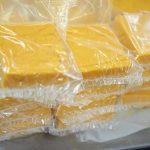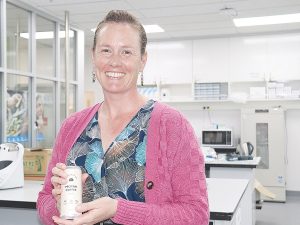
Karaitiana Taiuru said Kapiti Cheese has named a cheese after a famous Māori ancestor of the Kapiti area Tuteremoana.
“I assume the Kapiti Cheese used the name as it is also a popular landmark, but that landmark is named after the same ancestor, a personification,” he said.
He said a mother expressed hurt that her children who are descendants of Tuteremoana were worried they would be eating their ancestor.
“It is not difficult to fact check names in New Zealand and businesses should be doing this as a part of their Q and A,” said Mr Taiuru.
Tuteremoana was my kids ancestor who lived at Rangitatau Pa on Welly’s south coast and the summit was named after him
My kids know the oriori written for him by heart
My eldest was baptised at his birthplace
Seeing him as aged cheddar is kind of weird pic.twitter.com/hN1AgGWqti— 2Tapu (@2TAPU) 27 de noviembre de 2018
Fonterra’s Māori strategy general manager Tiaki Hunia said the Tuteremoana cheddar had been on the market for about 10 years and had been inspired by Kāpiti Island’s summit.
“While inspired by Kāpiti Island’s peak, we understand the sensitivity around using Te Reo Māori names and are conscious of the fact that names can have more than one meaning or interpretation,” he said.
“We want to be respectful of words and their meanings, which is why we have committed to reviewing all our brands which use Te Reo Māori,” said Mr Hunia.
“Fonterra’s Māori Strategy team will work internally with our brands teams to ensure we’re using Te Reo appropriately, and then with iwi to make sure we are respectful and undertake proper consultation.”
He said the review aligns with Fonterra’s commitment to encourage the use and practice of Te Reo, which it is doing with things like Māori language classes, our Te Mātāpuna app and the proper spelling of Kapiti to Kāpiti, among other initiatives.
“We know there’s more to do, but we’re proud to be making some good progress.”
Karaitiana Taiuru believes cultural appropriation of Māori has become normalised over multiple generations by New Zealand businesses.
“We cannot directly blame the businesses, but we need to learn from these experiences and deploy better protection mechanisms and new partnerships to stop appropriation.”
He has identified a number of businesses who he claims are culturally appropriating Māori culture.
Karaitiana Taiuru’s list is:
Kapiti Cheese, a brand owned by Fonterra have named a cheese after a famous Māori ancestor of the Kapiti area Tuteremoana. According to Kaumatua Ross Himona, Tuteremoana was the most famous descendant of Tara, eponymous ancestor of the Ngai Tara tribe. He lived nineteen or twenty generations ago.
Some BP petrol stations offering organic coffee and advertising coffee branded with the Māori deity of fertility – Tiki. Karaitiana Taiuru said this should be labeled as false advertising as the coffee does not make you fertile, and if it does then a disclaimer needs to accompany the coffee.
Titoki Whiskey bottle represents the god of fertility Tiki as well. Titoki claims to be a traditional Māori alcohol that used traditional Māori medicines and was used by ancient spirits. Despite the fact that European settlers introduced alcohol and there was no traditional alcohol.
The Warehouse television adverts with the Māori Tiki on shopping bags. There is no relevance to the products available at The Warehouse, said Taiuru.
Tiki has been appropriated for so many years, that he has become a national identity by non-Māori to represent Māori.























